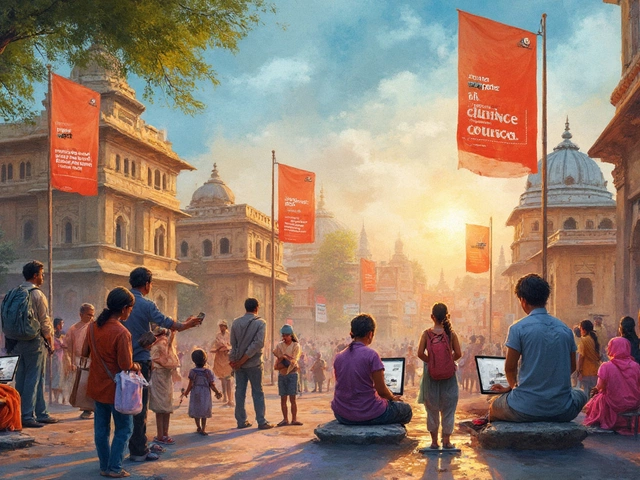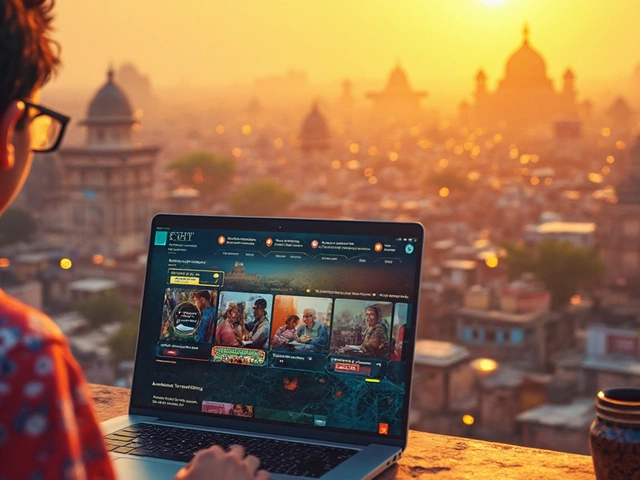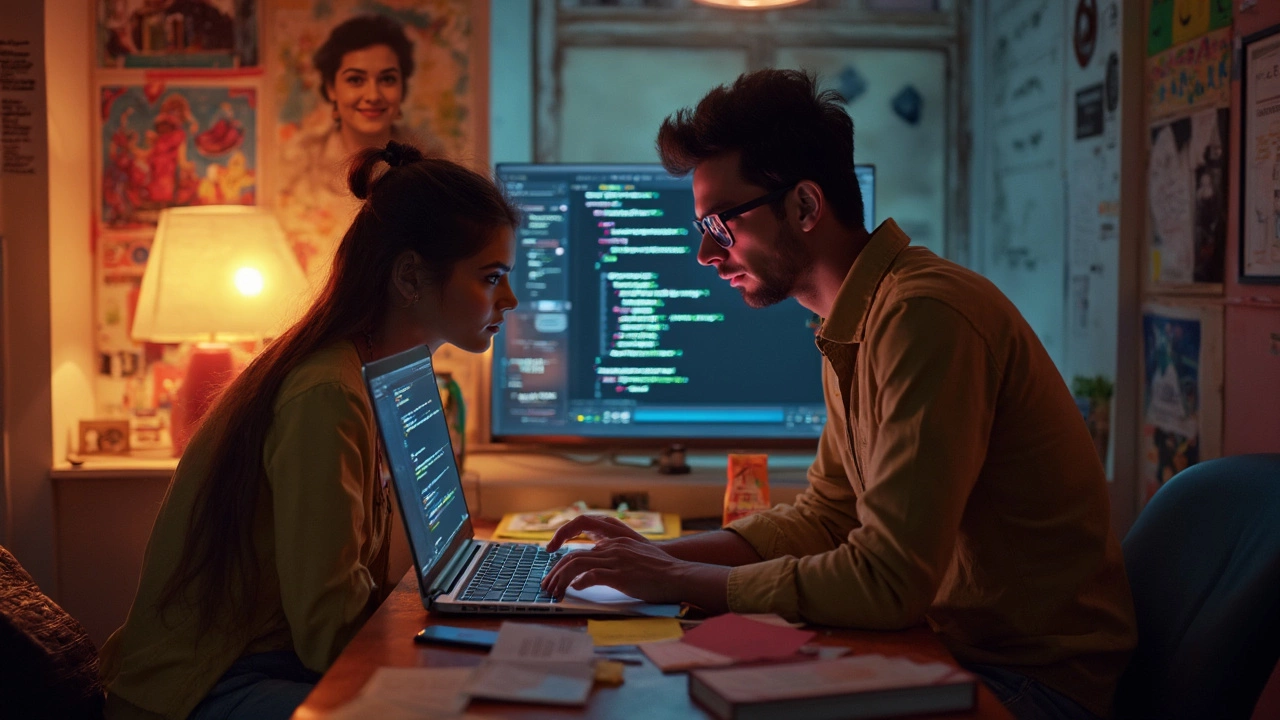
Coding sounds scary at first, but it’s honestly way more about practice than pure genius. Most people who write apps, websites, or even simple games weren’t born knowing this stuff—they just started.
The real trick? Don’t get overwhelmed. You don’t need to memorize a giant book or master everything right away. Coding is about building muscle, bit by bit. Kind of like learning to play guitar, but without sore fingers.
The first step is picking just one language to dive into. Seriously. Don’t try to learn five at once. New coders often go for Python because it’s cleaner and doesn’t make your brain hurt with weird symbols. And there are tons of beginner-friendly projects and courses out there for it.
Grab some free tools—nothing fancy—like VS Code or Replit, and find a short course or tutorial. The internet is packed with step-by-step videos and code-alongs. Build a basic calculator or a to-do list. It sounds simple, but the confidence boost is real when your first program actually runs. That’s the ‘aha’ moment.
Don’t stress about getting stuck. No one remembers their early code. The goal is to get your hands dirty, see what works, and keep tweaking until it clicks. Before you know it, you’ll be searching for bugs like a pro.
- Why Learning to Code Matters
- Choosing Your First Programming Language
- Best Free Tools and Resources
- Hands-On Practice: Build Something Small
- Staying Motivated and Avoiding Burnout
Why Learning to Code Matters
If someone told you a few years back that almost every industry would need coding skills, you’d probably think they were joking. Fast-forward to now, and here we are—tech is baked into everything. Healthcare, sports, banking, even food delivery depends on code. The global job market reflects this shift. According to the Bureau of Labor Statistics, software developer jobs are expected to grow 25% by 2032, way faster than the average for all jobs. That’s not hype—that’s demand going through the roof.
But it isn’t just about jobs. Learning how to code trains you to break big problems into smaller chunks. It’s basically mental weightlifting. It builds patience and boosts logical thinking. You start looking at regular problems—like tracking expenses or organizing your playlist—and thinking, “Hey, I could automate this!”
"Everybody should learn to program a computer, because it teaches you how to think." - Steve Jobs
What about money? Entry-level coding gigs already pay more than most starting positions. Plus, freelance coders and remote workers have boomed since 2020. Here’s a simple snapshot of the perks:
| Benefit | Why It’s Useful |
|---|---|
| High Salaries | Coding jobs pay 30% more than average entry-level roles (Glassdoor, 2024) |
| Flexibility | Work from anywhere—literally, just need WiFi |
| Creativity | Build apps, games, websites from scratch |
| Problem Solving | Get paid to troubleshoot and fix stuff |
The best part? You don’t need a tech degree to get started. Tons of self-taught coders have landed sweet gigs, built side hustles, or launched startups from scratch. In short, diving into coding for beginners isn’t just smart. It opens the door to skills, jobs, and projects you never thought possible.
Choosing Your First Programming Language
This is where most beginners get stuck before even writing a single line: picking the "right" programming language. Truth is, there’s no perfect answer for everyone. But some languages are way more beginner-friendly.
The usual suspects for new coders are Python, JavaScript, and Java. Here’s the lowdown:
- Python: Super readable, clean syntax, and widely used for everything from web apps to basic automation. Even schools and beginner bootcamps love it. Google, NASA, and YouTube use it a ton. No weird punctuation, so you spend less time scratching your head over errors.
- JavaScript: If you’re pumped about websites, this is your jam. Runs in every web browser, brings pages to life. Plenty of interactive tutorials and small project ideas out there. Plays well with HTML and CSS.
- Java: Well-loved in the business world, and it powers lots of Android apps. A bit stricter than Python, but still manageable for determined beginners.
Still feeling stuck? Look at these stats from June 2024 showing what languages newbies actually start with:
| Language | % of Beginners |
|---|---|
| Python | 41% |
| JavaScript | 23% |
| Java | 16% |
| Others | 20% |
Don’t waste hours debating or jumping from one to another. Ask yourself what you want to build. If you want quick wins, start with Python. For web stuff, grab JavaScript. Main thing? Just pick one and stay with it until you finish your first real project. That builds your confidence faster than endlessly researching languages.
The coding for beginners journey starts with actually starting—nothing magical about the language. The best choice is the one you’ll stick with long enough to finish something, no matter how small.
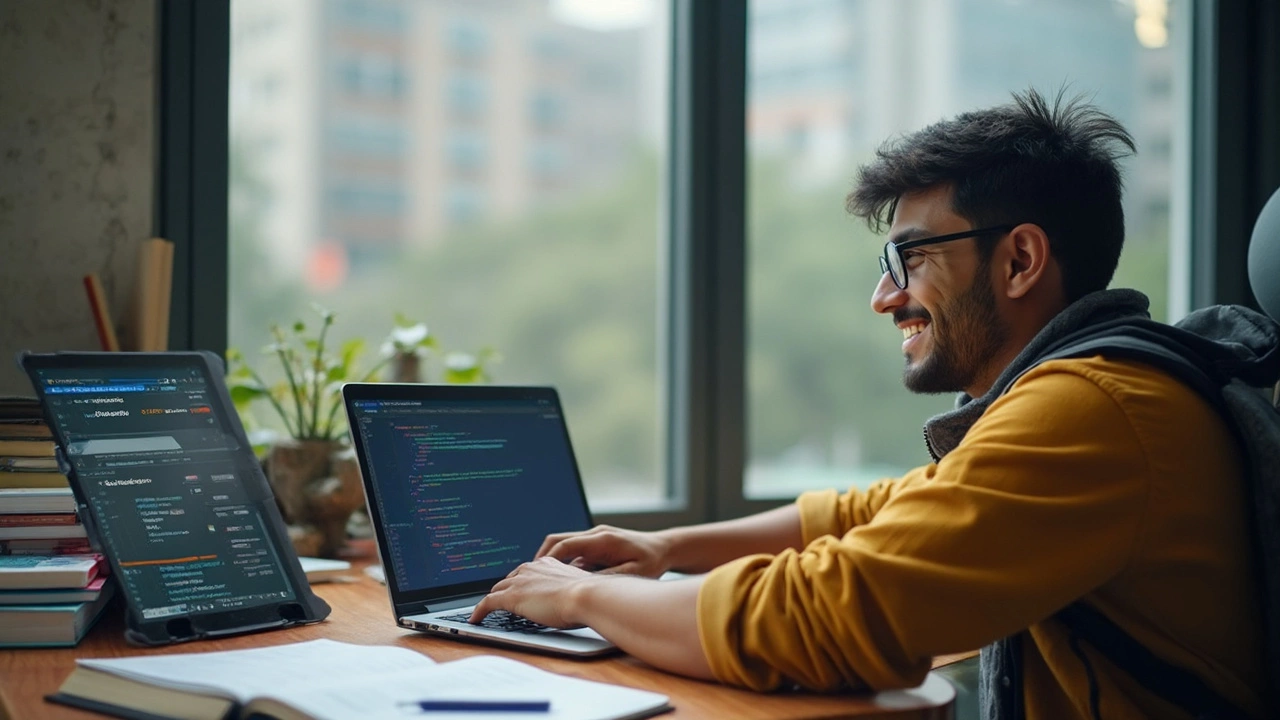
Best Free Tools and Resources
Here’s the truth: You don’t need to drop cash to get started with coding for beginners. There are tons of reliable, free tools out there—let’s break down what works and why people actually stick with them.
First up, code editors. Visual Studio Code (VS Code) is the current champ. It’s free, works on Windows, Mac, and Linux, and feels modern—there’s a reason Stack Overflow surveys show it gets picked by over 70% of developers. For people who want to skip installing stuff, Replit runs right in your browser and lets you code, save, and even share your work easily.
- VS Code: Feature-rich editor, great extensions, big community.
- Replit: No setup, start coding in seconds, supports many languages.
- Codecademy: Simple lessons for total beginners—lots are free.
- freeCodeCamp: Full coding courses with hands-on project work, also free.
- GitHub: Hosts your code and helps you learn teamwork on real software (plus, it’s become almost a resume for developers).
Video learning hits differently for some. YouTube channels like Corey Schafer (Python) or The Net Ninja (JavaScript) explain things in plain English, so nothing feels out of reach.
"Everyone should learn how to program, because it teaches you how to think." — Steve Jobs
Want stats? Check this quick table to see which free resources new coders actually use, based on 2025 data:
| Resource | % New Coders Using |
|---|---|
| VS Code | 73% |
| freeCodeCamp | 58% |
| Replit | 49% |
| Codecademy (free paths) | 44% |
| GitHub | 39% |
Honestly, the best combo is starting with an online editor like Replit, following a quick beginner playlist on YouTube, then picking one hands-on course (like freeCodeCamp). If you get stuck, Google your error or check Stack Overflow. Coding communities are huge, and nobody expects you to figure it out solo.
Hands-On Practice: Build Something Small
The fastest way to start actually understanding code is to make something that works—even if it’s tiny. Seriously, nobody writes a hit app on their first day. But if you can create a working calculator, a to-do list, or even a digital dice roller, you’re already on your way.
Start as small as possible. Python is super popular for beginners (it’s the first language used at MIT for a reason). Here’s a solid, simple path to follow:
- Pick a project idea that solves a real-world problem, even if it’s a small one. Need to add two numbers together? Automate your daily tasks? Great—start there.
- Break down the project into smaller parts. For example, for a calculator:
- Take user input
- Perform the calculation
- Show the result
- Write code for just one part at a time. Once it works, move to the next.
- Test your mini-program. If it crashes, read the error message. Google is your best friend here—type in the error and someone has probably solved it before.
Practice matters more than theory at this point. Stack Overflow’s 2023 survey showed that 84% of people who code for a living learned by building projects on their own, not in a classroom.
Harvard’s CS50 professor David Malan says, “The best way to learn programming is to try, fail, and try again. Every little project is a piece you add to your toolbox.”
Short on ideas? Here’s what a lot of beginners start with:
- Number guesser: The computer picks a number, you try to guess it
- Tip calculator: Figure out the right tip at restaurants
- Simple to-do list: Add and remove tasks
- Alarm clock: Set a timer and get a console notification
Whatever you build, keep it basic, but make it actually work from start to finish. Focus on the coding for beginners mindset—less about perfection, more about progress.
Worried that your first apps are “too basic”? Check out how much practice can help:
| Project | Estimated Time (hrs) | Skills Learned |
|---|---|---|
| Number Guesser | 1-2 | User input, random numbers |
| Calculator | 2-3 | Basic math, functions |
| To-Do List | 3-5 | Lists, loops, logic |
The point isn’t the project—it’s about using the language enough that you aren’t scared to break it. By building, breaking, and fixing, you teach your brain the stuff tutorials can’t show.
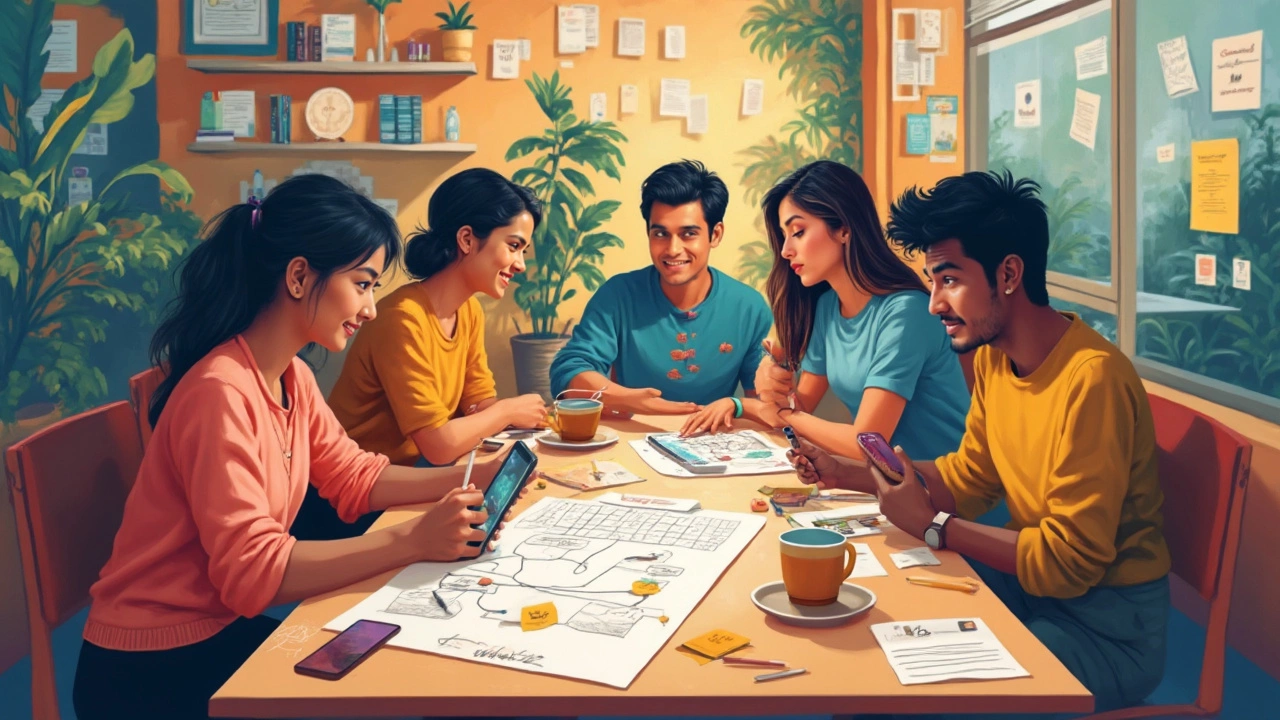
Staying Motivated and Avoiding Burnout
You know what trips up a lot of beginners? Motivation hits a wall after the first few weeks. It's normal—coding can feel endless, especially when it feels like nothing is working. Researchers at Stack Overflow found that almost 40% of new coders quit in the first two months. So, making a plan to keep your head in the game matters just as much as learning the code itself.
- Focus on small wins, not getting everything perfect. Finished a simple project? Celebrate that! Even tiny progress means you’re moving forward.
- Set a steady schedule, even if it’s just 20 minutes a day. Coding every day, even a little, builds habits better than cramming six hours into one weekend.
- Mix it up. Try different project types—games, websites, apps—so things don’t feel stale. Codewars and LeetCode have quick daily challenges to keep things fresh.
- Join online communities. Platforms like freeCodeCamp, Reddit's r/learnprogramming, or even small Discord groups let you ask questions, show off projects, and get real feedback.
- Track your journey. Write down what you learn, even if it’s messy. Looking back on your progress gives you a real boost when you hit future roadblocks.
Here’s a quick look at how new coders who stick to habits compare to those who don’t:
| Habit | Coding Retention Rate (6 Months) |
|---|---|
| Consistent daily practice | 60% |
| Irregular or binge sessions | 27% |
The coding for beginners journey is less about talent and more about not giving up. Don’t compare your progress to people on YouTube or coding gurus who make it look easy. Everyone gets stuck—that’s where real learning happens.
If frustration hits, step away. Go for a walk, play a game, or chat with someone. Clearing your head usually makes that error you’re stuck on seem way less scary when you get back to it.



